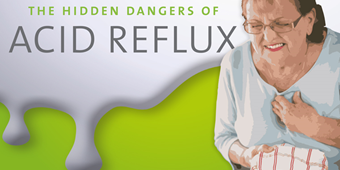Colon Cleansing: Uncovering the Hidden Dangers

Find Your Perfect Match
Answer a few questions and we'll provide you with a list of primary care providers that best fit your needs.
Ever hear of a colon cleanse? It's a therapy being touted by some holistic practitioners, claiming benefits that include weight loss and renewed energy, as well as prevention of allergies, asthma – even colon cancer.
There is no benefit to a colon cleanse, according to experts at MD Anderson Cancer Center, unless you’re preparing to undergo a colonoscopy. In fact, colon cleansing (including colonic irrigation or colonic hydrotherapy) is a very risky undertaking.
How is a colon cleanse performed?
During a cleanse, the patient usually rests on a table, while a colonic hygienist inserts a tube into the rectum and flushes the colon with fluid. The waste fluid is drained using another tube. The process may be repeated.
Colon cleansing products are an alternative to irrigation, but still carry huge risks. Most of these come in the forms of laxatives, teas, powders and capsules, according to an article published in the Journal of Family Practice in August 2011 by Ranit Mishori, MD, and colleagues. They can be taken by mouth or inserted into the rectum. Ingredients, which are often unregulated, include substances as diverse as sodium phosphate, coffee, licorice and milk thistle, writes Dr. Mishori and colleagues.
Why undergo a colon cleanse?
Colon cleansing is touted as beneficial to removing toxins from the body. But the large intestine is designed to eliminate waste and toxins all on its own, says the MD Anderson team, so cleansing is unnecessary.
What are the risks?
The risks are many. Dr. Mishori and colleagues warn about the following:
- Dehydration
- Removing healthy microflora (helpful bacteria) from the colon, upsetting a delicate balance that ensures good colon health
- Vomiting, nausea, cramps
- Bowel perforation
- Infection
- Depletion of probiotics, sodium and potassium
- Electrolyte imbalance
- Kidney damage
- Pancreatitis
Keeping your colon healthy and happy
There are better, safer ways to maintain colon health. These include:
- Eating a diet rich in whole grains, fruits, vegetables and beans
- Limiting red meat
- Avoiding processed and fried foods
- Keeping your weight in a healthy range
- Scheduling a colonoscopy (once every 10 years after the age of 50)
If you're concerned about your colon, see your physician before attempting any alternative therapies.
Find Your Perfect Match
Answer a few questions and we'll provide you with a list of primary care providers that best fit your needs.
Source: MD Anderson Cancer Center; Healthline.com; Journal of Family Practice: Mishori et al, J Fam Pract. 2011 August;60(8):454-457




